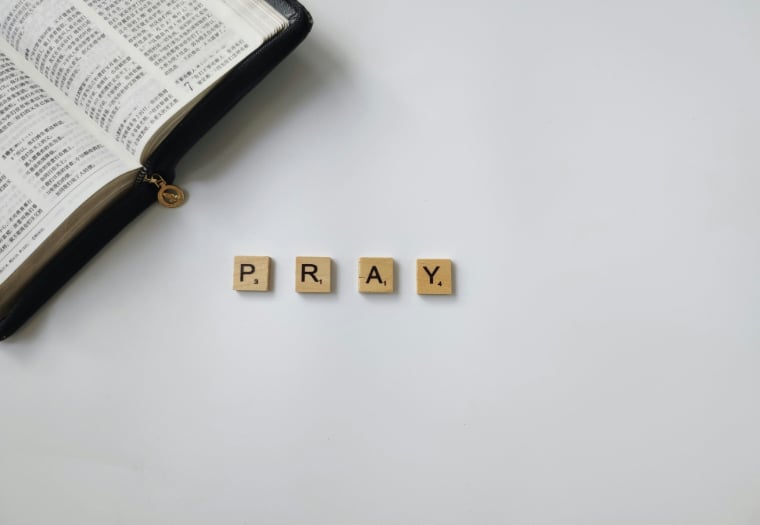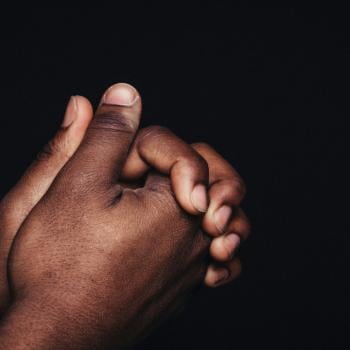
Introduction
Enthusiastic About National Day of Prayer
National Day of Prayer occurs on Thursday, May 1, 2025. The 2025 theme verse is Romans 15:13. Romans 15:13 mentions having joy and peace through trusting God, so you overflow with hope from the Holy Spirit.
This day brings me joy because I know the power of prayer. I also take delight in the privilege of bearing others’ burdens by interceding on their behalf.
Through intercession, God can do more than we ask or think, according to the power that works in us.
Sadly, many do not experience God’s goodness in this manner because they fail to pray. As a result, people worry and may even find themselves in chaotic situations trying to handle life alone.
The good news is that no one has to continue in this cycle. Why not take this first Thursday in May to establish a prayer life or recommit yourself to God?
Making this spiritual pivot may seem awkward initially, but I promise the decision will be worthwhile. When talking to God about your needs, consider praying about the issues plaguing America
Below, I will be highlighting seven topics the National Day of Prayer Committee wants participants to focus on.
Before addressing these areas, let’s examine two examples of corporate and individual intercession in the Bible. Then, we will review evidence revealing the origins of the National Day of Prayer.
Prayer from a Biblical Perspective
Corporate Mandates for Israel
Before the National Day of Prayer became a reality in America, the Israelites were commanded to pray for peace in Jerusalem.
This command comes from Psalm 122:1-9, which is one of fifteen songs of ascents. The Israelites would recite these songs while traveling to Jerusalem for the annual feast.
David uses this song of ascent to describe his excitement about going to the House of the Lord. His excitement stems from understanding Jerusalem is God’s city for worship, justice, and righteousness.
David’s appreciation for Jerusalem causes him to ask citizens to pray for its peace and the prosperity of those who love this city. His admiration for this holy place also compels him to intercede for its peace and seek its good.
David does this because he understands Jerusalem’s well-being will affect his family and friends.
Interestingly, a similar appeal to prayer appears in Jeremiah 29 as the Israelites become exiles in Babylon.
While in captivity, God instructs the Israelites to build houses, plant gardens, get married, and have children (Jeremiah 29:6) . He also tells them to intercede for Babylon’s prosperity since this is how they will prosper (Jeremiah 29:7).
The connection between prayer and the Israelites’ prosperity in exile unveils God’s plan for Israel. He will complete seventy years of punishment while promising to restore his wayward nation afterward (Jeremiah 29:10).
When restoration occurs, the Israelites will reunite in their homeland and enjoy having their prayers heard by the faithful creator (Jeremiah 29:10-14).
An Individual Act of Intercession
One biblical leader who heeds Jeremiah’s instruction to cry out to his faithful creator is Daniel. During King Darius’ reign, Daniel studies the laws of Moses and discovers Israel’s captivity will last seventy years.
Israel’s captivity compels Daniel to fast and pray for the nation. However, Daniel does not focus on the welfare of the Israelites. Instead, his prayer addresses how Israel’s sins offend the Lord.
Daniel does this by confessing the nation’s transgressions, such as
- Willingly turning away from God’s laws.
- Ignoring their prophets.
- Continually disobeying the Lord.
Along with admitting Israel’s sins, Daniel acknowledges God’s righteousness in punishing Israel. Daniel realizes God is a faithful promise keeper in both blessing and judgment, as he says in Deuteronomy 28.
Daniel also shows Christians that we should turn to God in prayer after sinning.
He does this understanding that there is no righteousness in the nation that suggests Israel deserves to have their prayers heard. Instead, Daniel pleads and expects an answer for Jerusalem solely because of God’s great mercy.
National Day of Prayer
Essential Dates
Another group of individuals who understood the success of a nation depends on God’s mercy and guidance is America’s forefathers.
Before the National Day of Prayer became official in America, political leaders set aside a time for citizens to pray.
- The Continental Congress declared July 20, 1775 as a day of public humiliation, prayer, and fasting.
- In 1795, George Washington proclaimed a public day for prayer and thanksgiving.
- May 9, 1798, was a day for humility, prayer, and fasting during John Adams’ presidency.
- On March 3, 1863, Abraham Lincoln signed a Congressional Resolution making April 30, 1863 a day for prayer.
Similar to the proclamations of political leaders during the 1700s-1800s, some essential dates help establish our National Day of Prayer. These dates are
- April 17, 1952 Conrad Holton and Senator Frank passed a bill setting aside a day each year (other than Sunday for America to turn to God in prayer.
- In 1983, the first National Day of Prayer happened at Constitution Hall in Washington, DC.
- In 1988 and 1998, Presidents Ronald Reagan and Bill Clinton signed laws into effect acknowledging the first Thursday in May as National Day of Prayer.
- 2020-2023 The COVID-19 pandemic forced National Day of Prayer gatherings to occur via phone calls, video chats, prayer drives, and the National Prayer Gathering Broadcast.
Families & the Military
In 2023, viewers of the National Gathering Broadcast responded to the Gospel or made prayer requests via text and telephone calls for the first time.
I wonder how many families and military members received salvation because of this enhancement to the broadcast. I also wonder how many families and Military members will obtain salvation because of National Prayer Day.
You can pray for families by asking God to
- Help spouses be equally yoked.
- Allow humility, stability, unity, and peace to exist among immediate and extended families.
- Grant single parents wisdom, strength, and endurance.
- Comfort during trials and grief.
- Teach families not to show favoritism and to forgive one another.
- Salvation for unsaved family members and restoration for backsliders.
Similarly, can also intercede for the military by asking God for
- Wisdom and righteous decision-making for leaders.
- Humility to take care of their physical and mental health.
- Assurance of God’s prescience amid times of war and peace.
- Courage to continue serving America and its allies.
- Hope and salvation in God.
Supplication for More Needs
A Prayer for the Government
Government officials also need to find hope and salvation in God alone. Knowing this, pray that government officials
- Trust in God more than their job or political status.
- Soften their hearts to do what’s best for United States citizens.
- Handle all affairs with the character expected of the office.
- Possess sound minds to deal with the pressure and high demands of their job.
- Establish policies to improve businesses, schools, communities, and others’ needs.
- Are willing to properly train future leaders who will continue their good works.
- Develop good health management strategies to alleviate stress and other sicknesses.
National Day of Prayer and the Final Four Points
Along with the Government, National Day of prayer allows participants to intercede for churches, education, businesses and the media.
Some common prayer points among these areas include
- The courage to reflect biblical teachings through their respective works and ethical practices.
- Leaders make choices that are in the interests of citizens, not their own needs.
- Adequate funding and resources to help them meet people’s needs.
- Sound leadership that will display godly character and operate in excellence.
- Courage not to compromise their morals for money, success, or fame.
- Job and ministry opportunities for underserved demographics.
- Creative ways to guide others to salvation in places where Christ isn’t revered.
Will you revere Christ by participating in the National Day of Prayer? Is there a topic that should be included with the seven areas mentioned above?
I’d love to hear your thoughts. Your commits and feedback are greatly appreciated!













